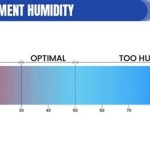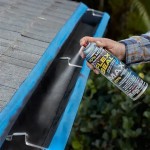Do I Have to Insulate My Basement Walls?
Insulating basement walls is a crucial step in home insulation, yet it often raises questions among homeowners. This article aims to address the essential aspects of basement wall insulation, exploring whether it's a necessary investment and the factors to consider when making this decision.
Benefits of Insulating Basement Walls
Insulating basement walls offers numerous benefits, including:
- Reduces Heat Loss: Insulation acts as a barrier, preventing heat from escaping through basement walls.
- Lowers Energy Costs: By reducing heat loss, insulation can significantly decrease heating bills.
- Improves Comfort: An insulated basement is warmer and more comfortable, especially during cold months.
- Prevents Moisture and Mold: Insulation helps regulate basement humidity levels, reducing condensation and preventing mold growth.
- Increases Property Value: A well-insulated basement is a desirable feature that can add value to your home.
Factors to Consider
Before deciding whether to insulate your basement walls, consider the following factors:
- Climate: In colder climates, insulation is generally more beneficial, as it reduces heat loss and helps maintain a comfortable temperature.
- Basement Usage: If you use your basement regularly as a living space or storage area, insulation is highly recommended to ensure comfort and prevent moisture issues.
- Existing Insulation: If your basement has existing insulation, it may still be effective and may not require additional insulation.
- Wall Material: Some wall materials, such as cinder blocks, are less resistant to heat transfer than others and may require more insulation.
- Budget: Insulating basement walls can be an investment, so consider your budget before making a decision.
Types of Basement Wall Insulation
There are several types of basement wall insulation available, including:
- Fiberglass Batts: A cost-effective and widely used option, fiberglass batts are installed between studs or joists.
- Cellulose Insulation: Made from recycled newspaper, cellulose insulation is often installed by blowing it into place.
- Spray Foam: A high-performance insulation that creates a seamless, air-tight seal.
- Rigid Foam Boards: Insulating boards made from polystyrene or polyisocyanurate.
- Mineral Wool: A fire-resistant and eco-friendly insulation made from natural minerals.
Conclusion
Whether or not to insulate your basement walls depends on a variety of factors. However, in most cases, insulating basement walls is a worthwhile investment that can significantly improve comfort, reduce energy costs, and increase property value. By considering the benefits, factors to consider, and types of insulation available, you can make an informed decision that meets your specific needs and budget.

Do I Need To Insulate My Basement Walls News And Events For Total Finishing

How To Insulate A Basement Wall Greenbuildingadvisor

Should I Insulate My Basement Constellation

How To Insulate Basement Walls True Value

How To Insulate Your Basement S Concrete Walls The Seattle Times

How To Insulate Your Basement Like A Pro

Should I Insulate My Basement Ceiling And Walls Aire Serv

Insulating Basement Walls With Fiberglass Batting Semigloss Design

Basement Insulation Upstate Spray Foam

Do You Need To Insulate Basement Walls Below Grade Validhouse








